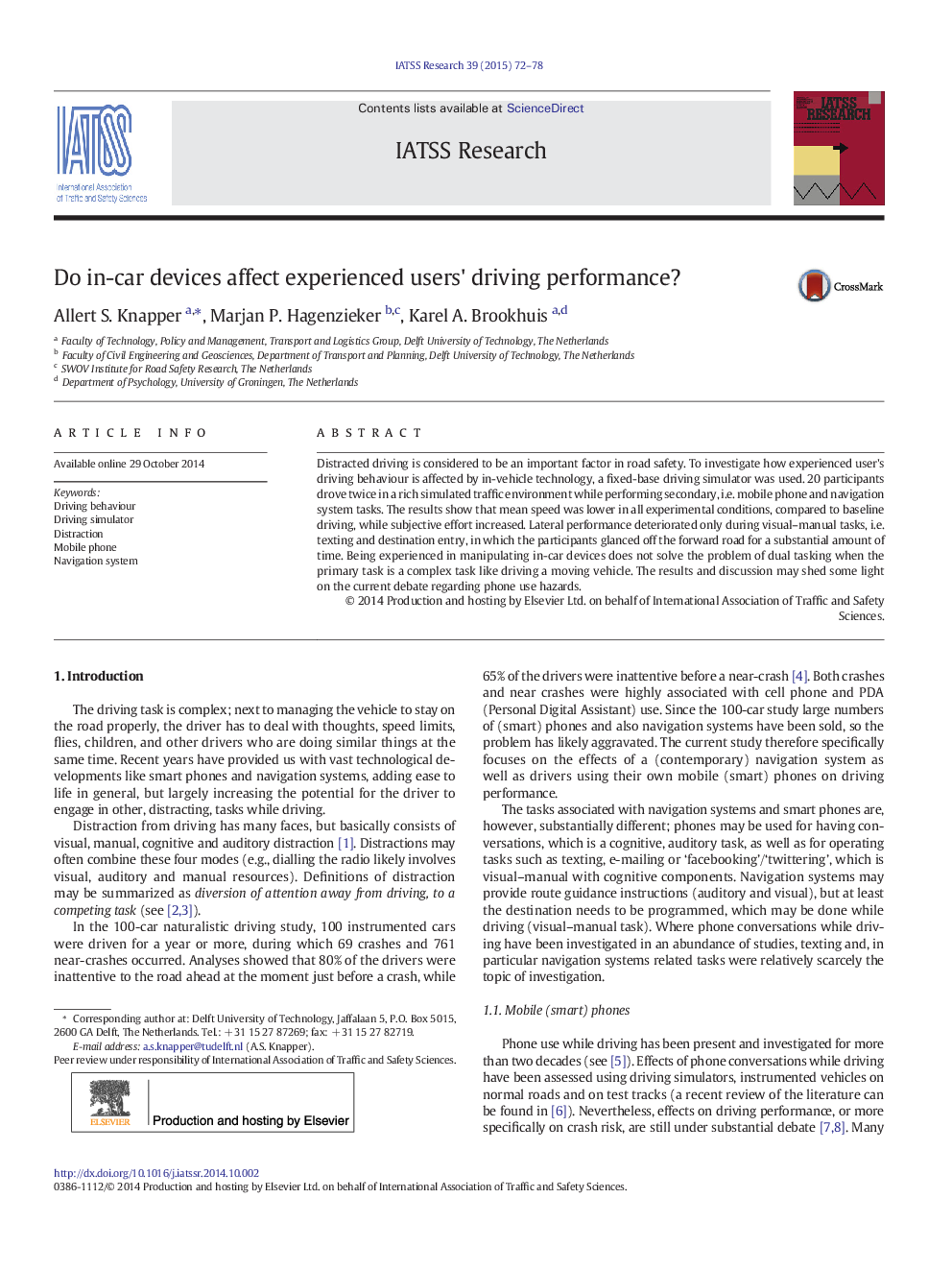| Article ID | Journal | Published Year | Pages | File Type |
|---|---|---|---|---|
| 1104582 | IATSS Research | 2015 | 7 Pages |
•Twenty experienced in-vehicle device users drove in a driving simulator.•They performed tasks of way finding, destination entry, texting, and handheld phoning.•Compared to baseline, speed was considerably lower with any in-vehicle task.•Effort ratings for in-car device tasks while driving were relatively high.•Visual–manual tasks increased eyes off road time and deteriorated lateral control.
Distracted driving is considered to be an important factor in road safety. To investigate how experienced user's driving behaviour is affected by in-vehicle technology, a fixed-base driving simulator was used. 20 participants drove twice in a rich simulated traffic environment while performing secondary, i.e. mobile phone and navigation system tasks. The results show that mean speed was lower in all experimental conditions, compared to baseline driving, while subjective effort increased. Lateral performance deteriorated only during visual–manual tasks, i.e. texting and destination entry, in which the participants glanced off the forward road for a substantial amount of time. Being experienced in manipulating in-car devices does not solve the problem of dual tasking when the primary task is a complex task like driving a moving vehicle. The results and discussion may shed some light on the current debate regarding phone use hazards.
